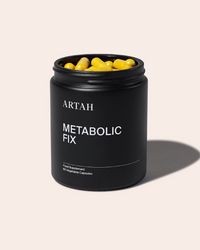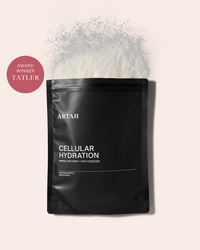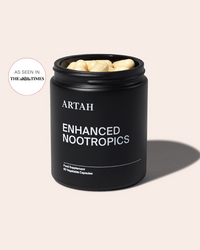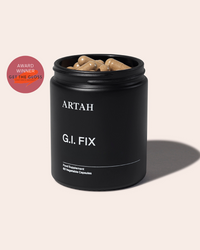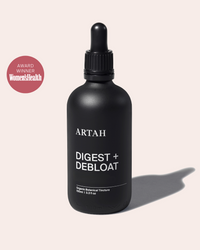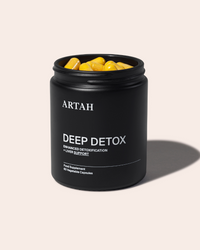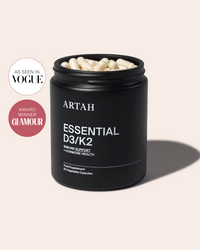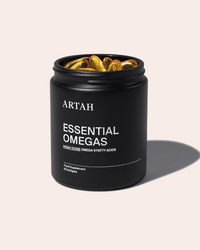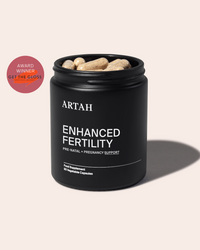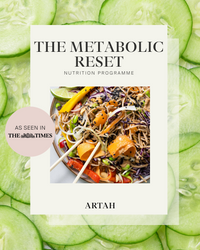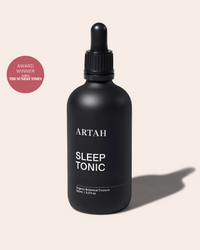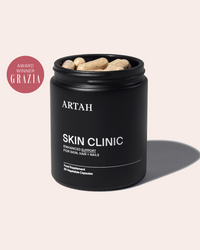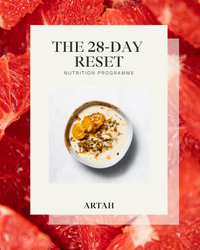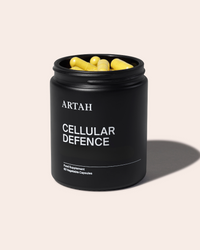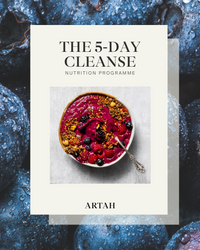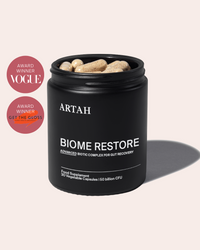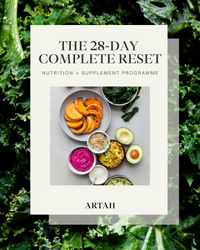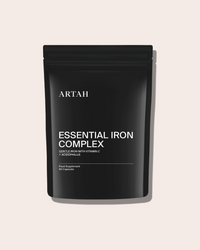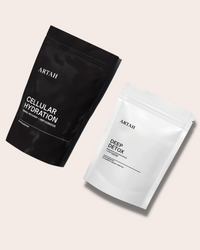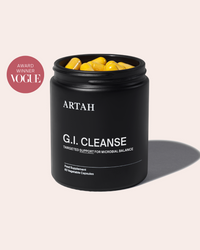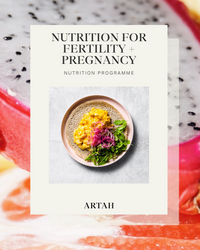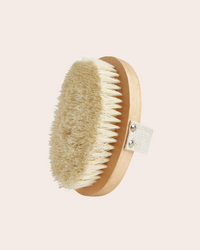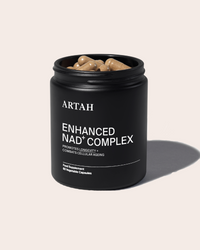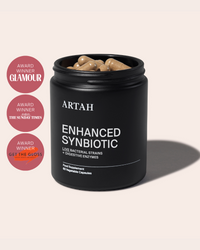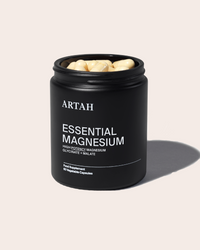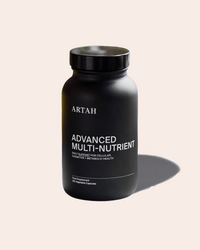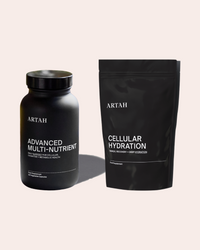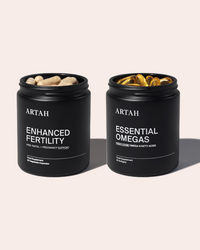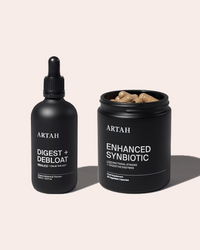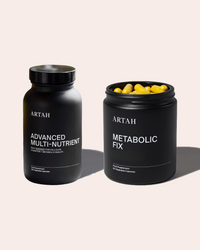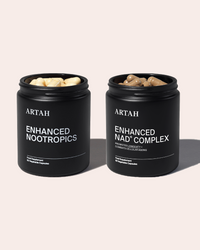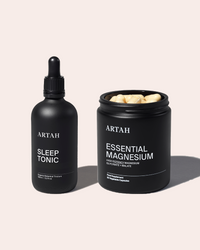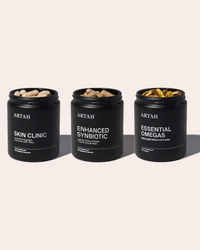Covid 19 + Your Microbiome
Yes, we're a little over hearing about Covid-19, but there’s been a slow and steady increase in self-reported IBS and GI symptoms since the pandemic began, and it turns out it's not a coincidence.
It's easy to understand why this may have been the case during the height of lockdown – greater levels of stress, anxiety, social isolation, and a change in lifestyle habits are all big contributors to G.I. disruption - but it still seems to be going on. Recent research has shown that the disease itself can not only have both short and long-term impacts on our microbiome, but the health of our microbiome can influence disease severity and recovery. So, whether you’ve had Covid-19 or not, here’s what you need to know.
1) It can decrease microbial diversity
Emerging research is showing that infection with SARS-CoV-2 leads to a disrupted microbiome – meaning a loss of beneficial microbes, a proliferation of pathogenic microbes, and a reduction in overall diversity. This was seen whether patients were treated with drugs (including antibiotics) or not, suggesting that restoring the microbiome should be a key factor in helping to prevent long haul symptoms and get your body back to health.
2) It causes G.I. inflammation
The virus has an affinity for our ACE2 receptors, which are found in abundance in the cells of the lungs, arteries and veins, which is one of the ways Covid causes inflammation and damage. But, these receptors are also found – and in greater proportion – in our gastrointestinal tract, in which the virus can cause the same type of inflammation and damage seen in other tissues. G.I. symptoms are present in around 50% of Covid patients, but just because you don’t have symptoms doesn’t mean your G.I. tract isn’t affected.
3) Severity can be influenced by your microbial make up
Cancer research has shown us that the makeup of our microbiome and distinct presence of certain species of bacterium, has a direct effect on the efficacy of different types of cancer treatments – meaning, our gut make-up can be the deciding factor in whether we respond to a treatment or not. Unsurprisingly, this concept isn’t confined to cancer treatment. Studies suggest that the composition of our microbiome also influences our disease severity when it comes to SARS-CoV-2. The exact interaction between the gut microbiome and the severity infection is an active research area at the moment so we’re still waiting for more answers, but in the meantime, it gives us another reason why we should probably be focusing on our gut health as a top priority.
4) Oral health plays a role
We have over 700 species of bacteria in our mouth, and whilst we’ve known for ages that oral health is essential to reduce the risk of dental issues, research is now telling us that the health of our oral microbiome is linked to a number of systemic diseases like CVD, diabetes, Alzheimer's and other chronic inflammatory diseases – even more surprising is that it can also influence pregnancy outcomes (mind blown). What does this have to do with Covid-19? The microbial environment of our mouth influences our risk of getting it as well as our risk of complications. What are some of the things that deplete our oral microbiota? Smoking, drinking, chewing gum, sweets, are some to start. Excessive use of mouthwash and the use of mouthwash/toothpaste that has chlorohexidine will wipe out both good and bad bacteria.
So, what can you do?
— You guessed it, plant diversity, fermented foods + a focus on nourishing the microbiome is key to help get your bacterial population up to scratch.
— Up your fibre; this will help your good bacteria produce essential mood and immune boosting compounds and favour the growth of the good guys.
— If you’ve ‘suddenly’ developed IBS or just feel like your gut isn’t right and you’ve had covid in the last year, we recommend a course of Cellular Defence and G.I. Fix to help repair the gut, replenish the microbiome and supply essential immune nutrients. If you need something more comprehensive to reduce reactivity in the gut, try combining it with The 5 Day Cleanse.

— Reduce the amount of chewing gum you use; whilst having it every now and then may actually have some benefits (by increasing saliva), overuse will start to disrupt the microbiome. In addition, the chemical sweeteners in most commercial gums are bad for the microbiome, so consider swapping them to one of the more natural brands.
— Check your oral care products for clorohexidine and swap to more natural based products
— Be mindful of mouth breathing. You may not realise it, but a lot of us are mouth breathers. Breathing through the mouth bypasses the extensive filtration system found in the nasal passages and has been shown to negatively impact our oral health. For some fascinating reading on the mind blowing science of breathing, try Breath by James Nester. By the time you put it down you’ll be convinced that breathwork is something you need in your life.
**The use and implementation of the theories and practices in this article is at the sole discretion of the individual, and the information shared is not a substitute for medical advice, diagnosis or treatment. If you have any concerns about your health, Artah Nutrition Ltd advises you to seek support from your physician.





